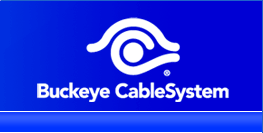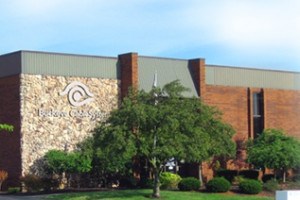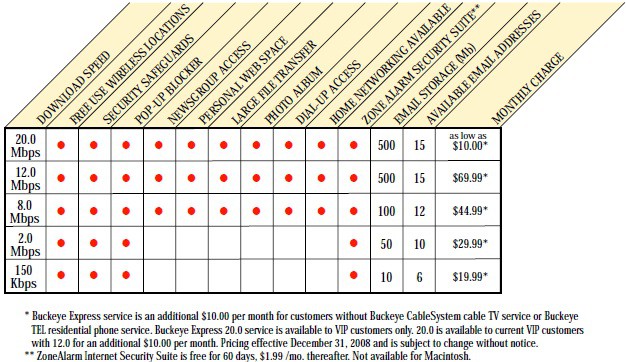One way or another consumers will pay more for their Mediacom cable service in 2010. The undecided question is will Sinclair-owned television stations get a chunk of your wallet or will Mediacom keep it all for themselves.
Weary Mediacom customers have been through this battle before. For the second time in three years, residents of Des Moines, Iowa face the prospect of losing access to their local Fox station, owned by Sinclair.
The ads are up and running.
[flv width=”360″ height=”287″]http://www.phillipdampier.com/video/Mediacom WEAR Ad.flv[/flv]
Mediacom is running this spot, customized for each city impacted by the dispute, comparing Sinclair’s demands as another “bailout.” This one is running in the Pensacola-Mobile market, where station WEAR is threatened with removal from Mediacom’s lineup.
Sinclair is demanding another price increase from the cable operator and Mediacom has a history of playing hardball and refusing to pay. If the two sides don’t reach agreement by December 31st, 22 Sinclair-owned stations in communities served by Mediacom will be taken off the cable lineup.
Viewers aren’t happy, especially because they do not get a reduced bill from the cable company for the reduced channel lineup that results.
Both sides are waging campaigns to try and get viewers into the fight. But in the end, it’s a battle of two corporate titans fighting over their portion of your money.
[flv]http://www.phillipdampier.com/video/KCCI Des Moines Mediacom Sinclair Exchange Strong Words 1-23-07.flv[/flv]
Back in January, 2007 Mediacom customers spent five weeks without Sinclair-owned television stations on their cable dial. A nasty exchange between Sinclair and Mediacom was documented in this report aired by KCCI-TV Des Moines back on January 23, 2007. (3 minutes)
[flv]http://www.phillipdampier.com/video/KCCI Des Moines Mediacom Loses Customers 5-4-07.flv[/flv]
The fallout from the 2007 dispute could be measured by disgusted customers who fled Mediacom for other providers, as KCCI found on May 4, 2007. (2 minutes)
[flv width=”512″ height=”308″]http://www.phillipdampier.com/video/WHO Des Moines Sinclair vs Mediacom 12-15-09.flv[/flv]
WHO-TV Des Moines covers today’s dispute impacting Mediacom and the city’s Fox affiliate. (2 minutes)
[flv]http://www.phillipdampier.com/video/KDSM Des Moines Mediacom vs Sinclair 12-17-09.flv[/flv]
KDSM-TV Des Moines is the Sinclair-owned Fox affiliate. The station covers its own dilemma, warning viewers they might lose the station for the second time in three years. (3 minutes)
[flv]http://www.phillipdampier.com/video/KFXA Cedar Rapids Mediacom Sinclair Dispute in Iowa 12-17-09.flv[/flv]
In Cedar Rapids, Sinclair’s KFXA-TV covers the dispute with a decidedly pro-Sinclair point of view. (3 minutes)
[flv]http://www.phillipdampier.com/video/WEAR Pensacola Sinclair Mediacom Dispute 12-16-09.flv[/flv]
WEAR-TV in Pensacola, Florida spends a great deal less “news time” covering the dispute. WEAR is the Sinclair-owned ABC affiliate for the Florida Panhandle. (30 seconds)


 Subscribe
Subscribe








